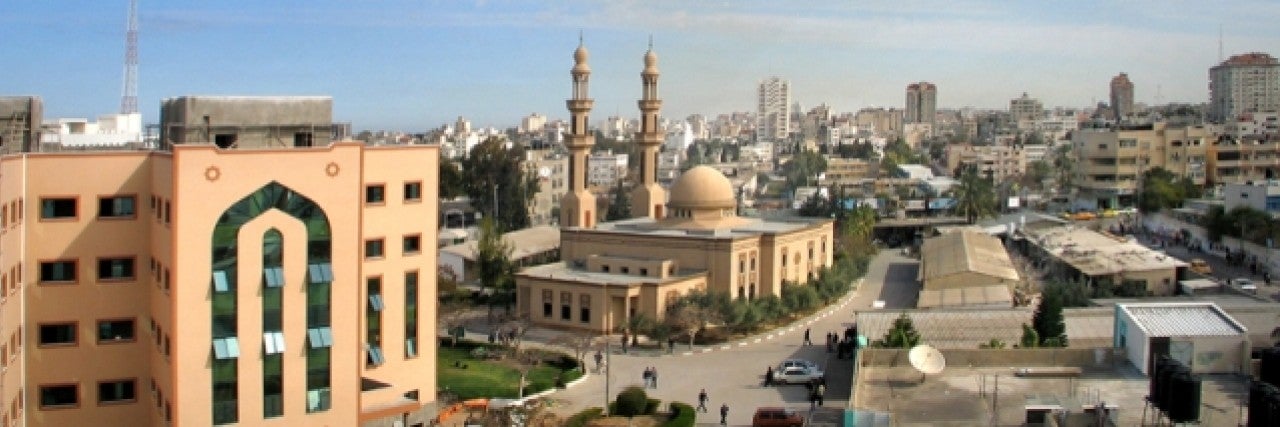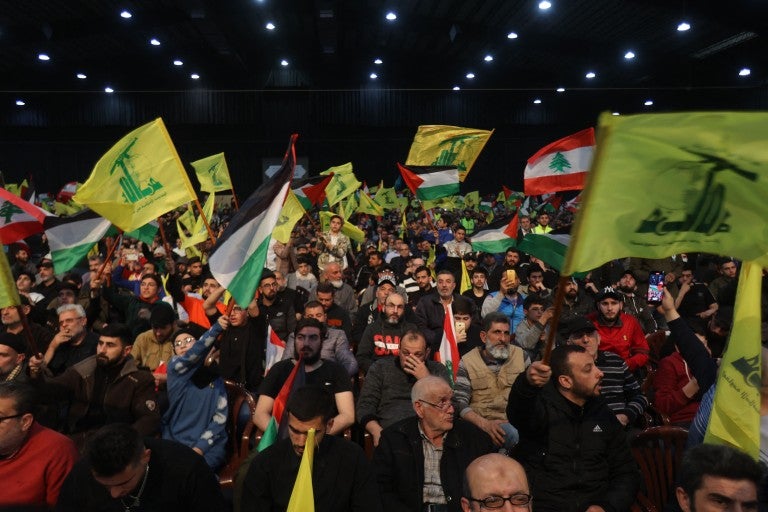July 25, 2018 — Jerusalem, Israel
By Eran Lerman
The challenge the present situation in Gaza poses is clear: A terror organization (viewed as such not only by Israel and the U.S. but also by almost all European countries) has been in control there since taking power by force in 2007. Hamas has clearly prioritized its "Jihadi" mission, seeking the destruction of Israel and the dream of "the return" of Palestinians there over the daily needs of its subjects. Many millions have been poured into rockets and tunnels, with Iran lending a hand in arming both Hamas (with whom it works, despite serious differences) and Palestinian Islamic Jihad (a fully owned Iranian proxy). Hamas is also backed by Erdogan's Turkey and by Qatar, both seeing themselves—in tandem—as the patrons of the Muslim Brotherhood and its affiliates across the region.
Hamas's leaders still adamantly refuse to accept the three "Quartet conditions" of 2006: renouncing terror, accepting Israel's right to exist, and endorsing existing agreements (i.e. Oslo). Due to its deadly rivalry with Hamas, President Abbas has cut off much of the PA funding and salaries to the Gazans, exacerbating an already poor economic predicament. The growing sense of siege and distress contributes to the militant attitudes of young people in the Strip, who vent their anger at Israel. Gaza is thus a source of persistent trouble, and the violence of the last few months came within inches of a fourth round of fighting, which could have reprised 2008/2009 ("Cast Lead"), 2012 ("Pillar of Defense"), and 2014 ("Protective Edge") – or worse.
Conflict Management
And yet both sides chose to walk back from the brink. Egypt, which handles Hamas through intelligence channels—conventional diplomacy would be seen as legitimizing a Muslim Brotherhood offshoot, which the Sisi regime abhors—played a major and even aggressive role in explaining to Hamas and PIJ what the consequences of a full-scale Israeli assault would be for them. As the IDF systematically escalated its air strikes even while being careful to avoid loss of life, messages asking for a ceasefire started pouring in through several channels. This time, the powers that be in Gaza were finally willing to curb the fire kites and balloons which have done much damage to Israel's fields and nature reserves in recent weeks. (One wonders why Hamas thinks that the cruel slaughter by fire of lizards, tortoises, and birds promotes the Palestinian cause). Choosing between destruction, deference, and deterrence, the Israeli defense establishment, and ultimately the cabinet led by Netanyahu, opted for the least disruptive way forward, in line with a general preference, under present circumstances, for managing the conflict.
Many Israelis reacted angrily to the government's decision to accept a ceasefire. To them, anything short of a massive blow that would defeat and incapacitate Hamas is little more than a cowardly attempt to kick the can down the road. Watching the "fire terror" attacks for weeks on end, Israelis across the political spectrum were outraged and wanted to see Gaza invaded and the terror infrastructure destroyed. The IDF, however, is far from eager to do so, not because of the fear of losses, but because it doubts if the benefits are worth the cost.
Should Israel remove Hamas and take over Gaza, the IDF is likely to find itself in the troubling position of hated ruler and harassed provider for the foreseeable future. Abbas is in no position to come in "on Israel's bayonets," and Egypt is even more reluctant to take over. Years of bloody entanglement by the IDF in Gaza do not seem worth the prize, especially since even without active warfare or a land incursion, Israel has already neutralized the key Hamas threats—rockets and tunnels— using highly sophisticated technologies. A solution to the fire kites may also emerge soon. With the balance of power so skewed and the IDF quick to learn new tricks, the likelihood that Hamas will gradually become strong enough to pose a real threat to Israel's survival is remote, and thus does not warrant the drastic answers that the hardliners advocate.
At the other end of the range of options, those who advocate a grand bargain with Hamas, and perhaps even a so-called "Marshall Plan" for Gaza, have equally difficult questions to answer. Hamas is a terror organization whose ideology is focused upon our destruction, not a group of social democrats in Western Europe. Even if it is unlikely ever to be in a position to carry out such designs—after all, the IDF, despite the cost to Israel's international reputation, was quite able to block penetration of the border fence—Hamas its leaders should not be rewarded for their designs and for their terror attacks with lavish handouts, some of which will surely feed their military effort. Moreover, any deal with Hamas giving it an edge over the PA leadership in Ramallah would have disastrous consequences: it would undercut the legitimacy of those who chose to take the path of (partial) cooperation with Israel, and would strengthen the hand of the Muslim Brotherhood and its backers in the region-wide struggle for power.
Deterrence Key to Israel’s Security
With no grand solutions either violent or peaceful at hand, the IDF's preferred option remains conflict management. At its core lies the old, ugly but useful concept that has always been central to Israel's security doctrine: deterrence, writ large. Since deterrence is a psychological effect, it requires a capacity on the other side to understand the cost/benefit analysis, reckon with Israel's "escalation dominance," make rational choices, and then have enough control over its troops to implement them. Third parties—in this case Egypt and a few others—can then be useful in transmitting a rough warning to the Hamas leadership.
Deterrence and escalation dominance can only work, however, if Israel's actions are seen as legitimate both at home and abroad; if not, the overall cost/benefit analysis would shift in Hamas's favor. Hence the need:
- For the IDF to act with careful restraint as much as possible and use violence only as a last resort; and for the Israeli government (backed by the international community, including the work done by Kushner's team), to look for practical ways to avoid a humanitarian crisis in Gaza. Given the strength of Israeli public opinion when it comes to MIA issues, this must also involve a deal to retrieve the bodies of two soldiers killed in 2014, and to release an Israeli citizen of Ethiopian origin who crossed the border into Gaza and is held by Hamas.
- For Israel's friends to do all that can be done to explain the complexity of the Gaza challenge to those in the U.S. and the West who are fed simplistic media images and fail to perceive what is at stake.
Eran Lerman is the former deputy for foreign policy and international affairs at the National Security Council in the Israeli Prime Minister's Office. Prior to that, he served as director of AJC Jerusalem.


